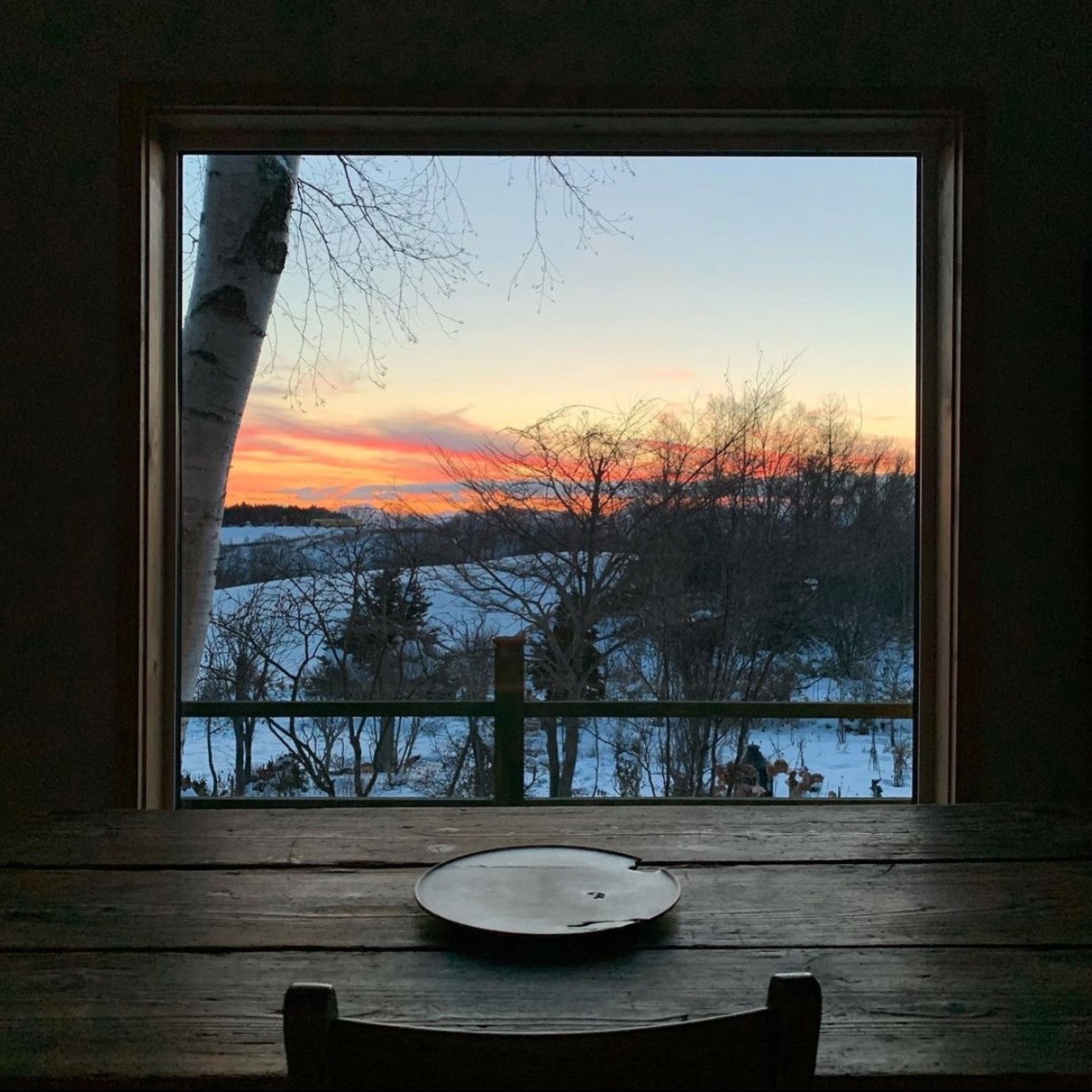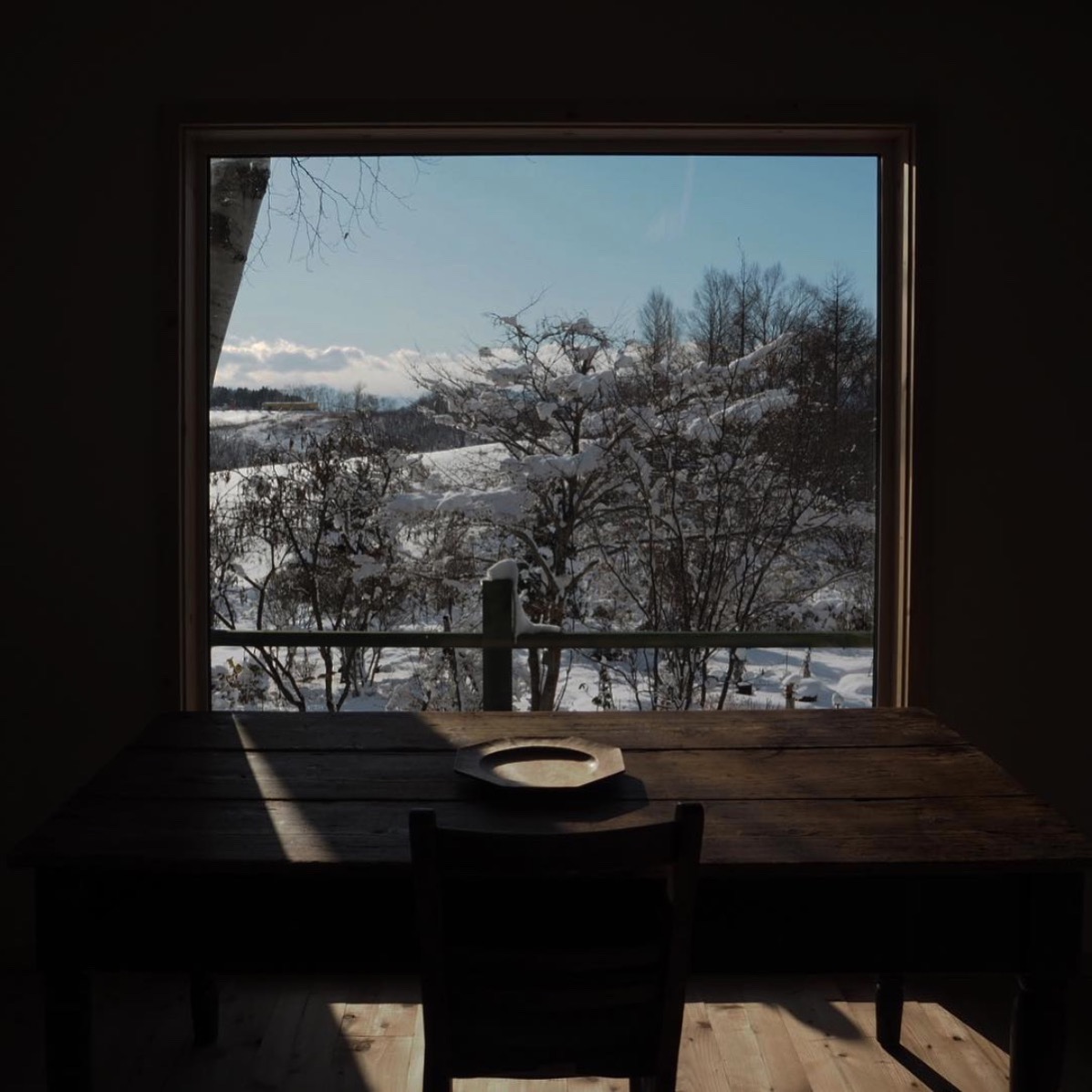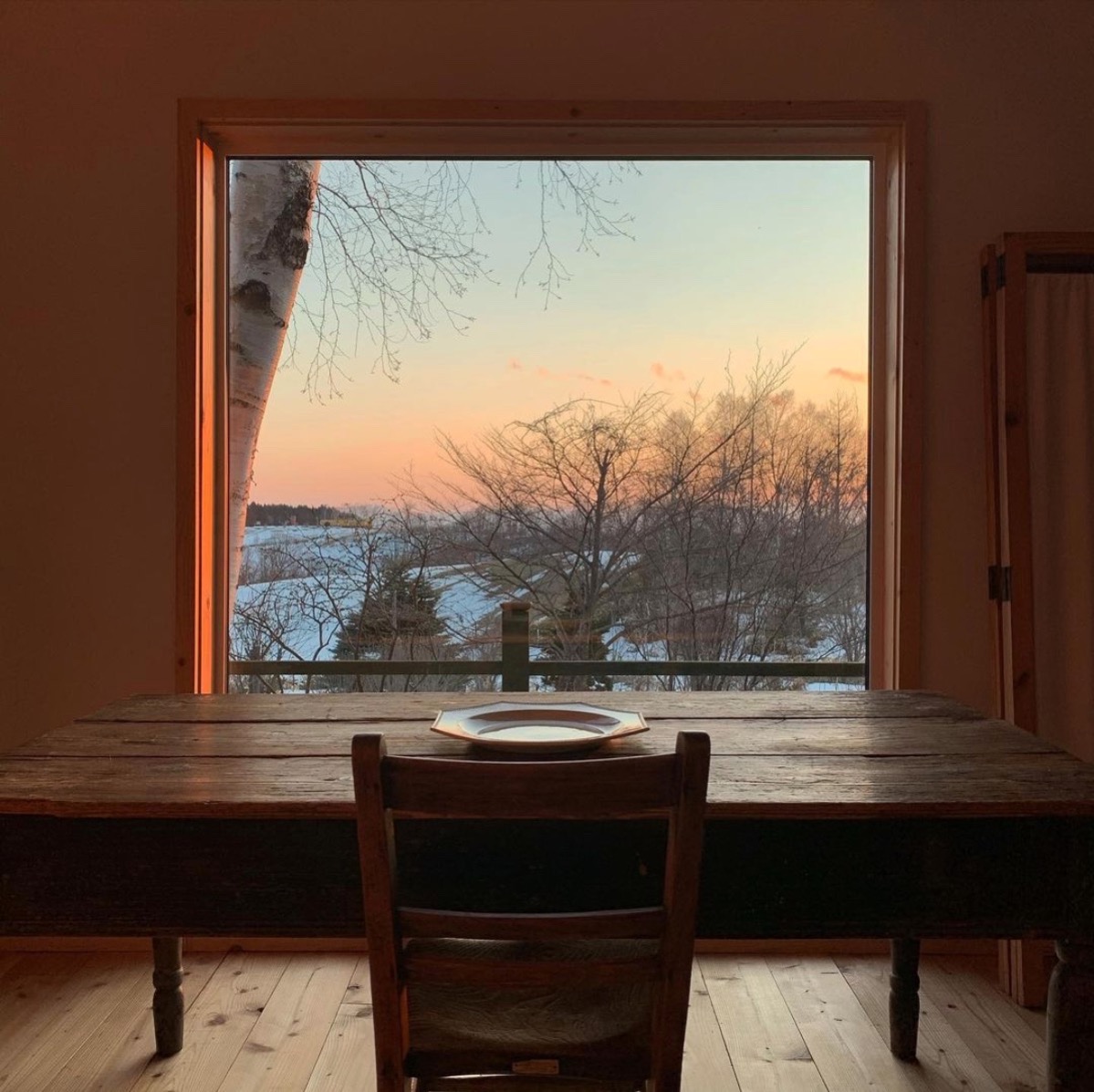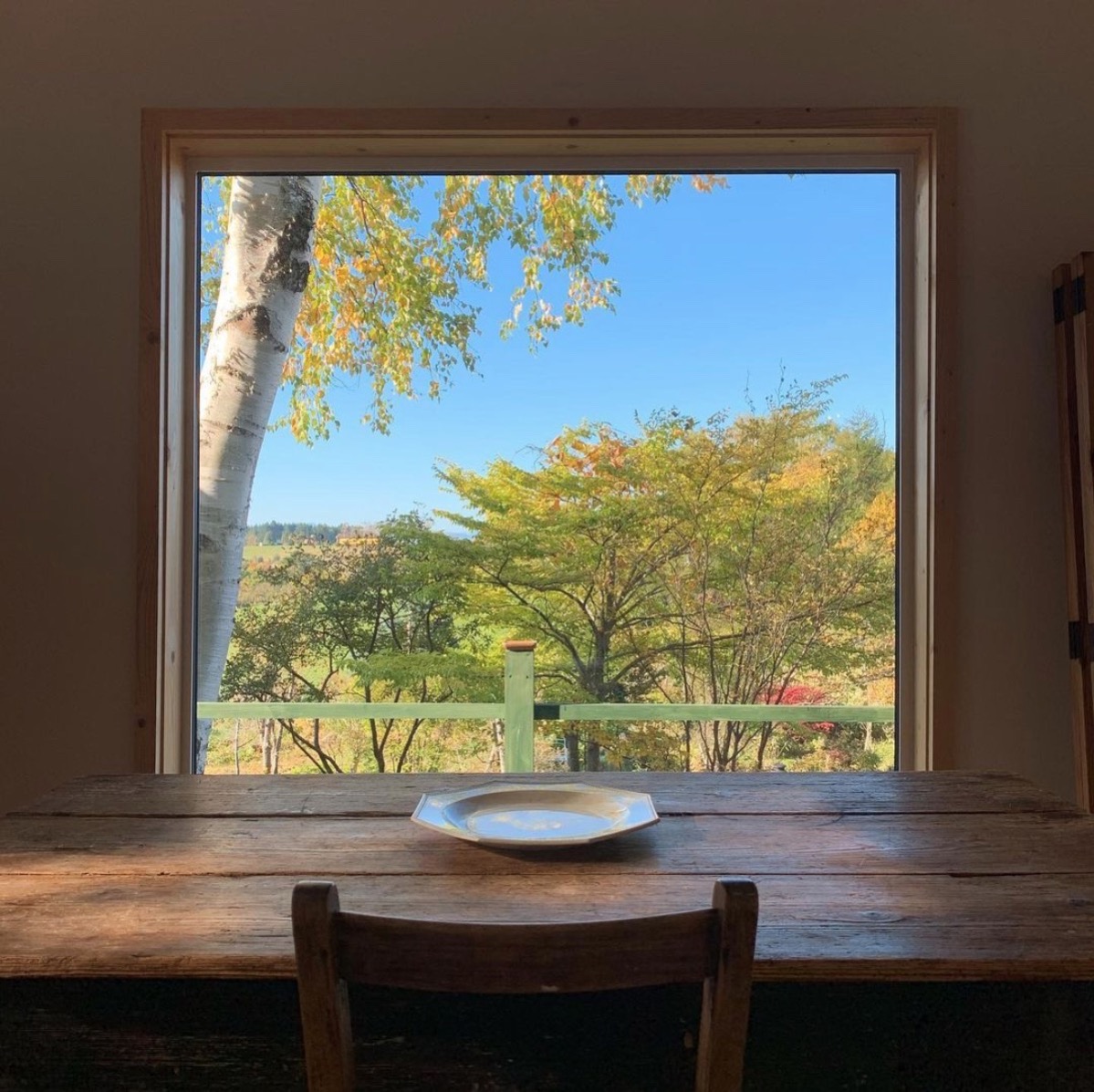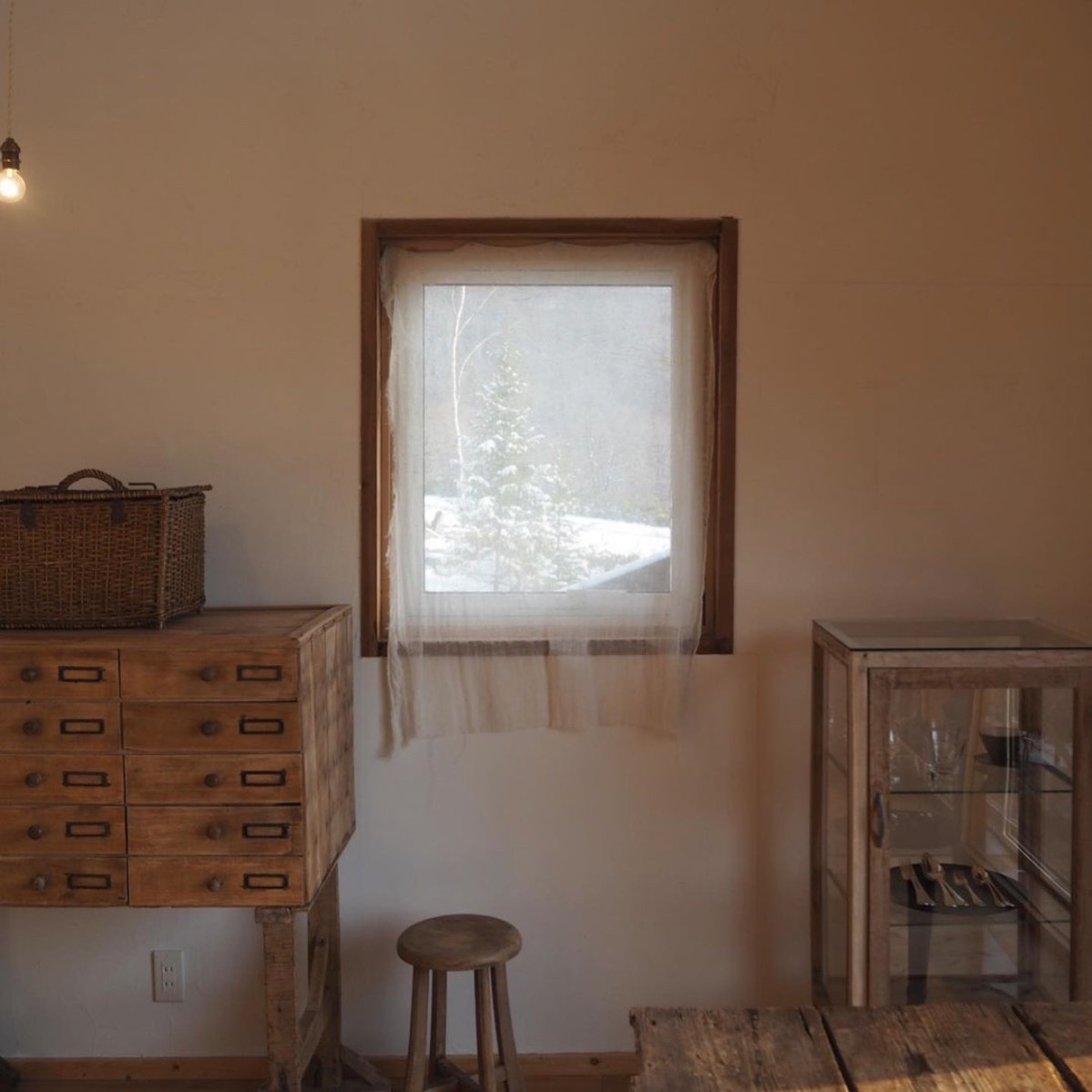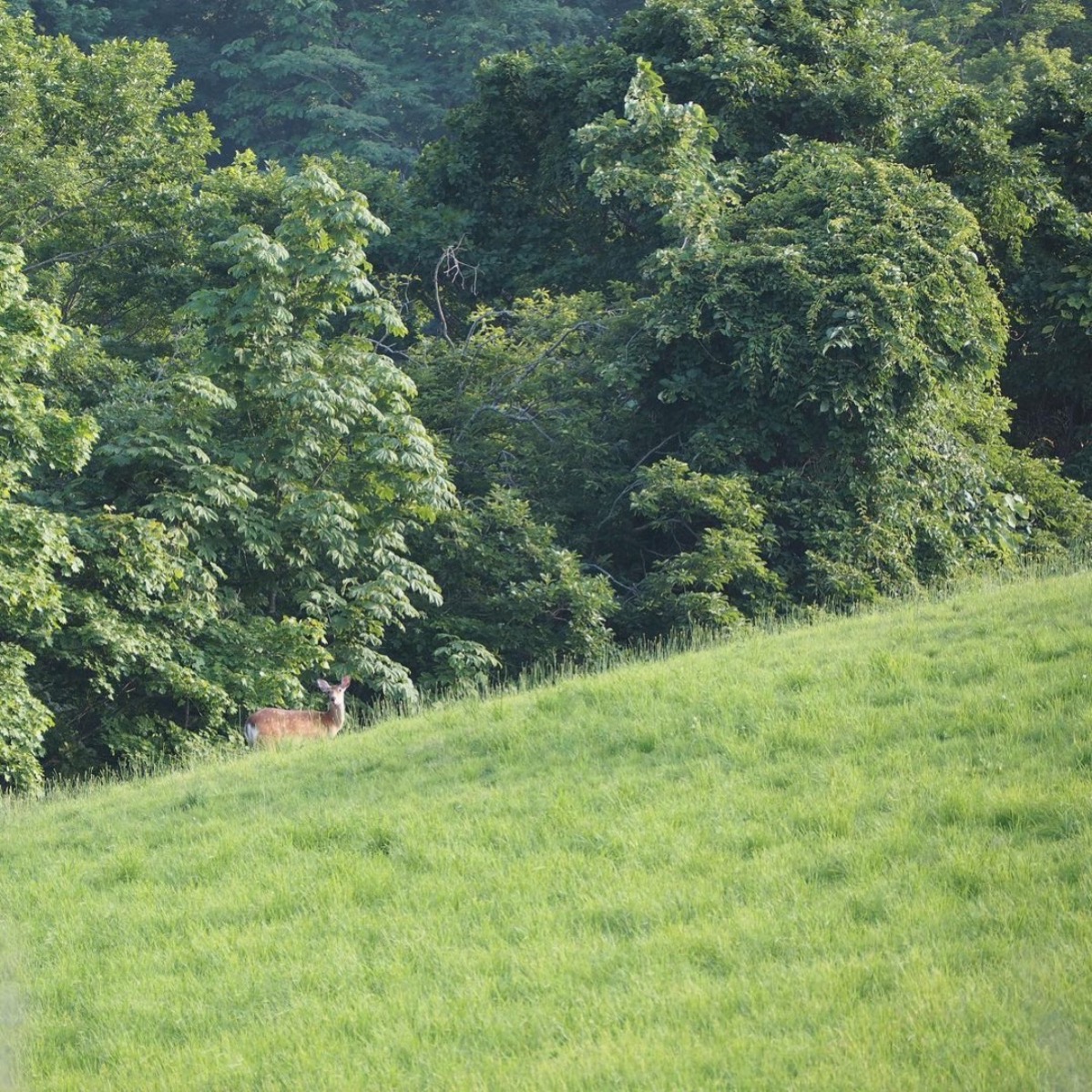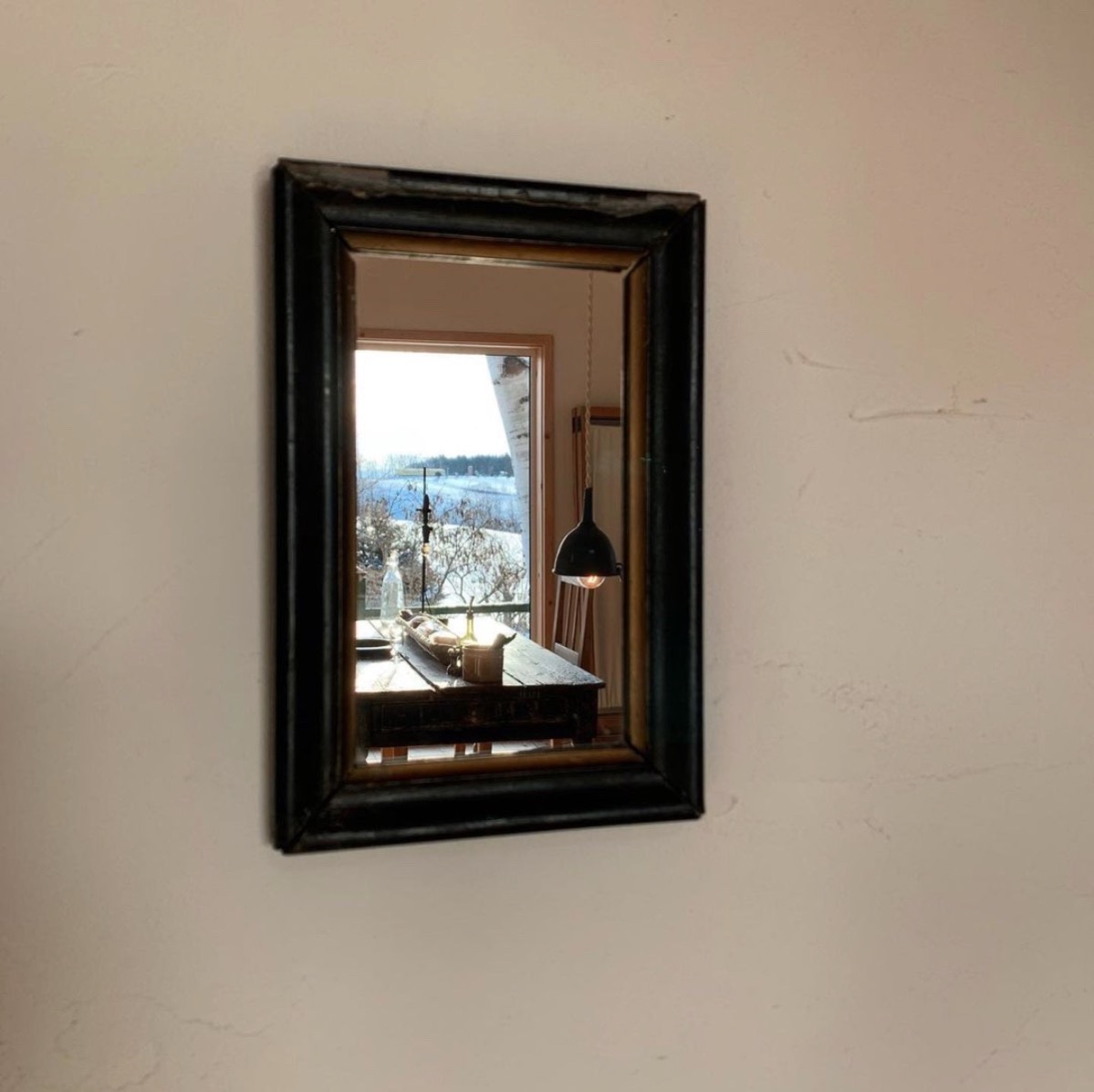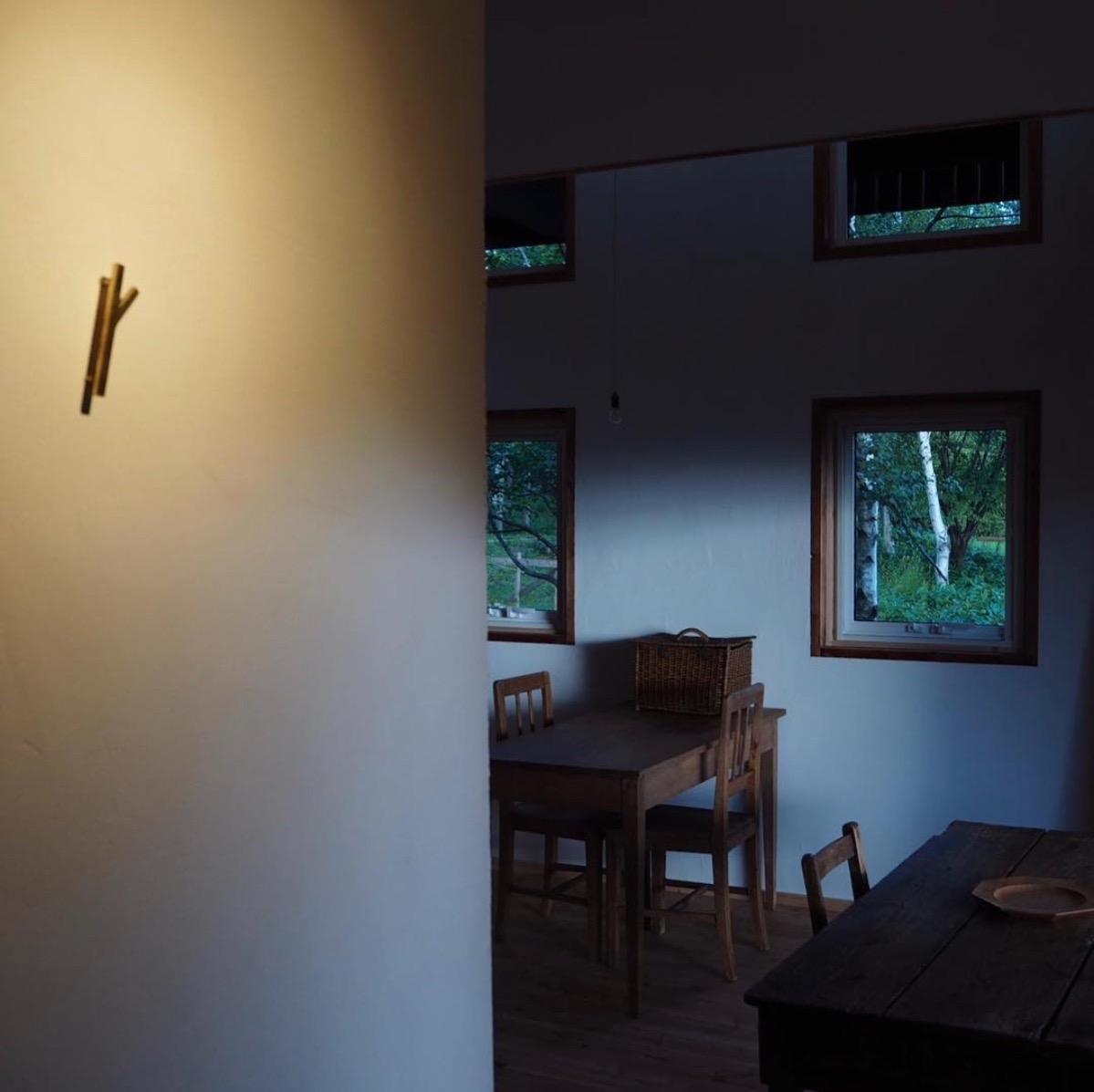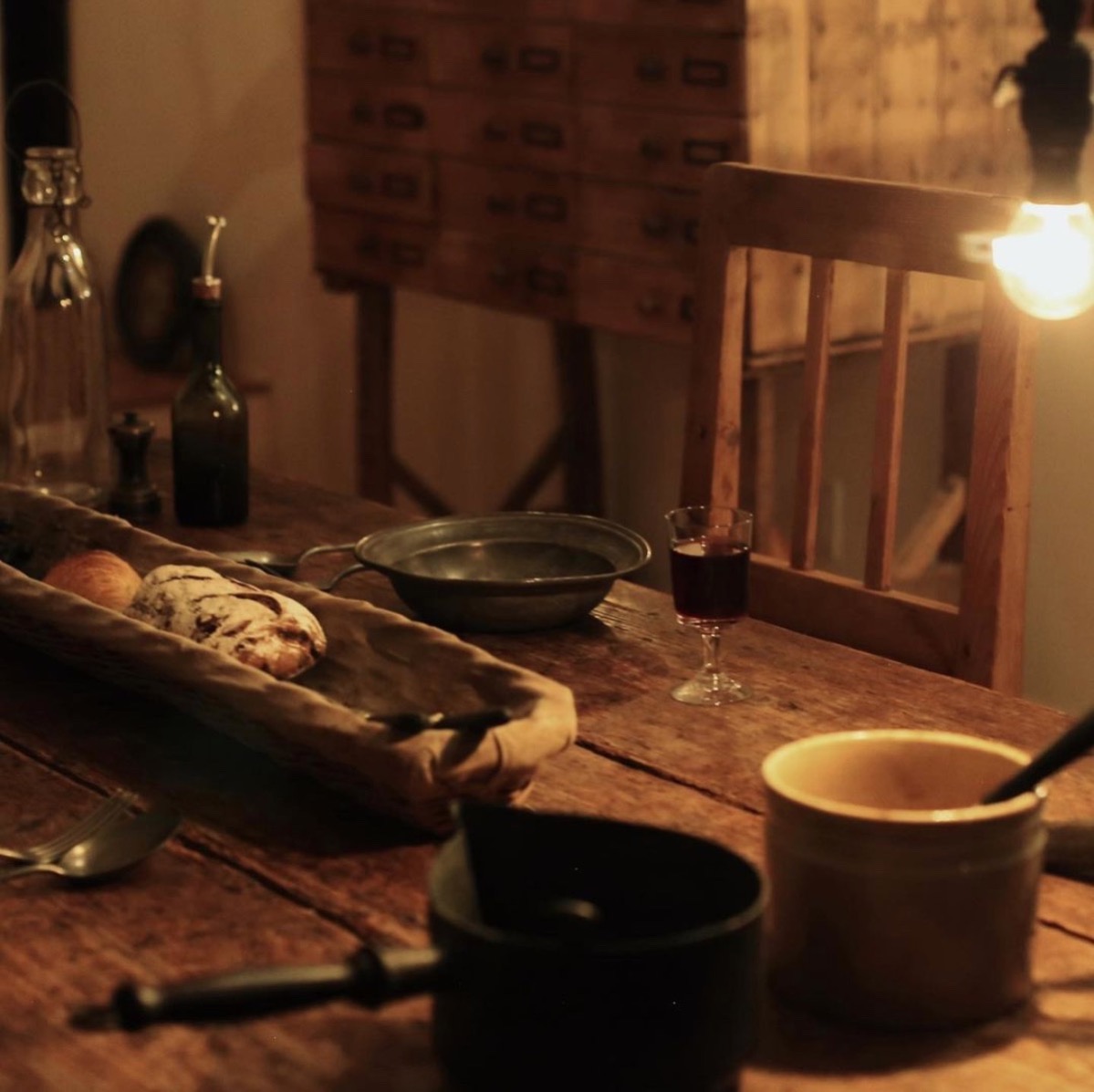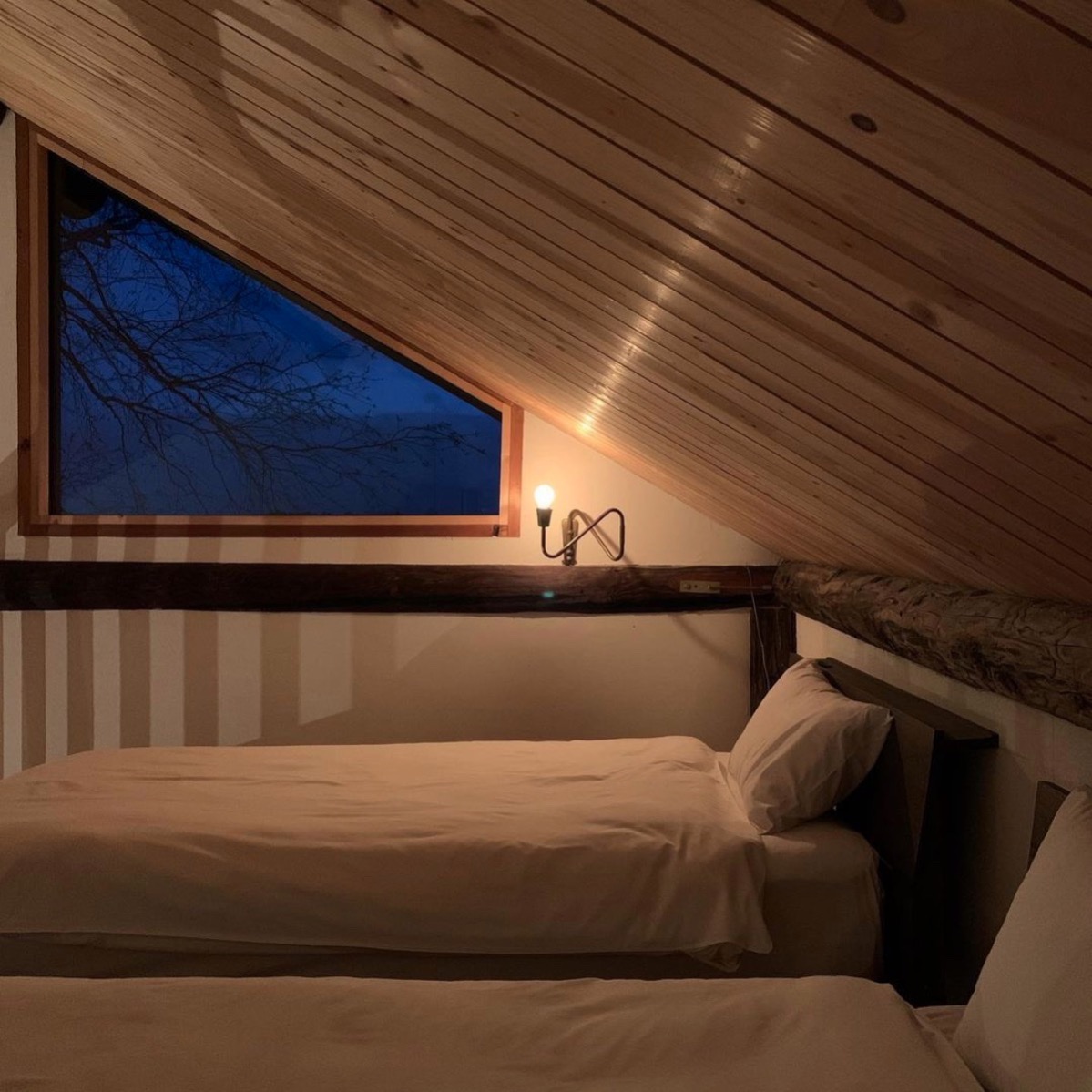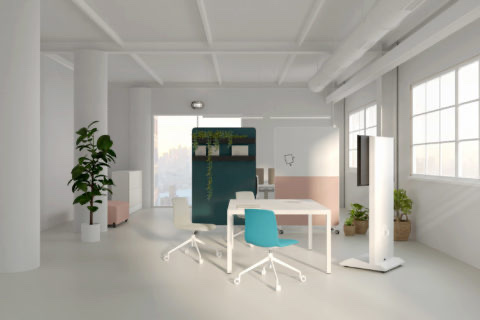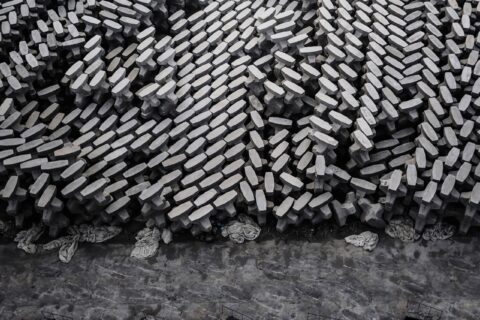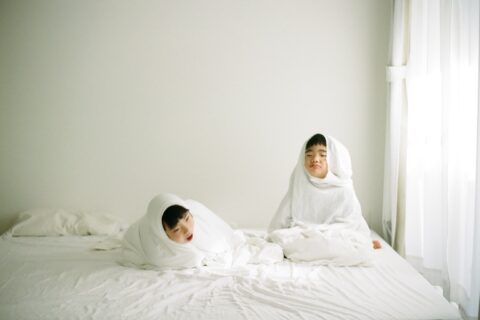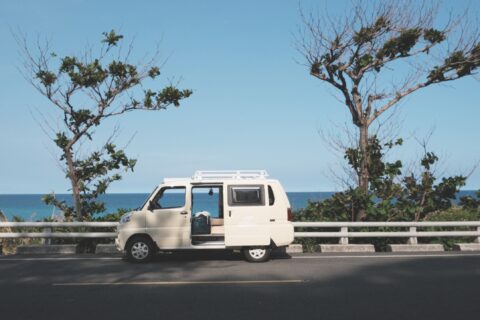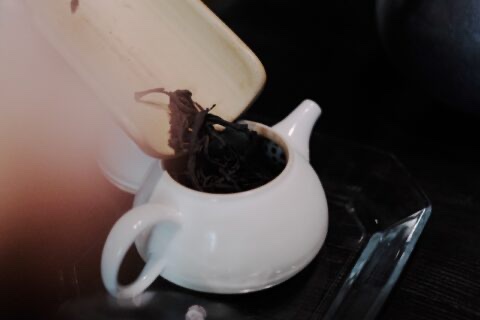大大方格,裱起了窗外白樺,一踏入雪季,本來已白的樹幹又披上更厚的白。
在小木屋裡,在四方窗前,看葉兒飄,看雪兒降至慢慢把大地包圍。
人好像,當身處這樣一個空間,想像便能因此飄揚,可能是窗子敞開後送來的風,也可能是心底裡對某種生活的嚮往,都會在新的空間裡,像動畫中,當大地精靈感到快樂,一夜間便能長出一個樹林。
The large window frames the endless white. The falling snow is adding yet another layer of white to the paper birch.
Sitting beneath the window in the small wooden cabin, you witness the leaves gently fall and the snow quietly covers the last bit of earthy brown on the ground.
Your imagination roams free in such a space and time; maybe it’s the wind that blows through the open window, or maybe it’s your long yearning for a certain life that frees your mind. Your imagination finally flies freely and fiercely, just like how the happy elves turn an empty land into a beautiful forest.
日本北海道長沼町是個有很多藝術家居住的小鎮,在大自然的眷顧下,風光明媚得就像掉進《飄零燕》的風景裡。武隈洋輔修葺了這間從前也是藝術家住的老木屋,並把它設計成民宿與工作室,命名為maoiq no koya。屋子適合一到二人留宿,屋裡有各種有趣的窗子,睡床在閣樓的三角屋頂下,外頭景色都被框成三角,只要睜開眼,醒來與睡前,每一個角落在不同時間也是獨自一個模樣。
Naganuma in Hokkaido, Japan is a gorgeous small town that houses a number of artists. If you’ve ever watched the animation Heidi, Girl of the Alps, the scenery in Naganuma is exactly like what’s illustrated in Heidi. Yosuke Takekuma moved to Naganuma years ago, and turned an old wooden cabin that had once housed an artist into a guest house cum studio. He named this renovated space, maoiq no koya. The cabin, which has a lot of windows inside, can accommodate one to two guests comfortably. The sleeping room is located in the attic under the gable roof. Every morning and night, the guest can enjoy the uniquely beautiful scenery through that triangular window frame.
預約住宿前有個有趣的規則,你得告訴民宿主人「你是誰?」這個你,可以是任何人,「譬如是妄想主義者、逃避現實主義者或空想家等等」之類聽來怪異的角色也沒問題。打從這個回答開始,你坐在螢幕前敲著鍵盤訴說你的故事之時,小屋的門就敞開了一個讓你安靜看自己的地方。
屋裡有設施齊備的廚房,可以為自己和同伴料理、坐在餐桌前觀賞大自然變化、又或什麼也不做。我猜在這樣的環境裡應該會想整天待著,晚上喝點小酒,打開抽屜會看到民宿主人推薦的讀物。你也會想在附近發掘各種在地美味,有新鮮的手工果醬,拿來配民宿主人製作的窯燒麵包與咖啡應該會很不錯。屋裡的食器都可以自由使用,那是旅館每年進行兩次的限定企劃,蒐集藝術家們製作的生活道具,讓住客透過觸摸使用,去感受手造器物的溫度。每次更換都像換季,屋內會浮現不一樣的氣氛,即使身在同一間屋子,但輕微的變動就能發現新的樂趣。今年冬天,便找來古物店FIVE FROM THE GROUND,他們收集了一些古董碗盤、燈具、小道具與陳設,並著手改造了其中一些。
There is an interesting rule to follow if you wish to stay at maoiq no koya — you have to tell Takekuma who you are when you make a reservation. You can be anyone, for example, a delusionalist, an escapist, a dreamer, etc. It doesn’t matter how weird you are. While you sit in front of your computer, typing out your life story, the door to maoiq no koya is already opened for you.
The wooden cabin comes with a fully-equipped kitchen where you can make a feast for yourself and your companion. Though you might want to take your plate, sit by the window, and look at the sun going up and down. I suppose you’ll want to stay in during your visit to the cabin. Maybe have a sip of wine in the evening, and spend some quiet time reading the books recommended by Takekuma, your host. You will also want to try all the local delicacies. Among which, there are fresh homemade jams that go perfectly well with the kiln-baked bread and coffee made by the host. Feel free to use the tableware you find in the cabin. Twice every year, your host will curate a new selection of tableware and daily household items from local artists to refurbish the cabin. Every new collection brings a new vibe into the cabin. This winter, Takekuma has handpicked some antique dinnerwares, lamps, and decorative accessories from the vintage shop, FIVE FROM THE GROUND for the transformation.
如果,想要的生活跟你離得很遠,但有些日子陽光很好、光灑到你面前與腳下與所有你目光能及的地方時,也會把你的心照亮,那時抬頭看看,雲裡常常有些破口,你會從那裡看見光透出,就像你心裡渴望已久的變成了真實的一刻,會在你眼前短暫地停留。也讓人想起一個意義很美的日本詞語,「木漏れ日(komorebi)」 —— 從葉子隙縫中、灑進了陽光。
Even if your dream seems far away from you, remember that there are always days when the sunlight shines through gaps in the clouds and warms your heart. It feels like the moment you have longed for has finally come, even for only a brief moment of time. This reminds me of komorebi (木漏れ日 in Japanese) — the sunlight that filters through the trees.

